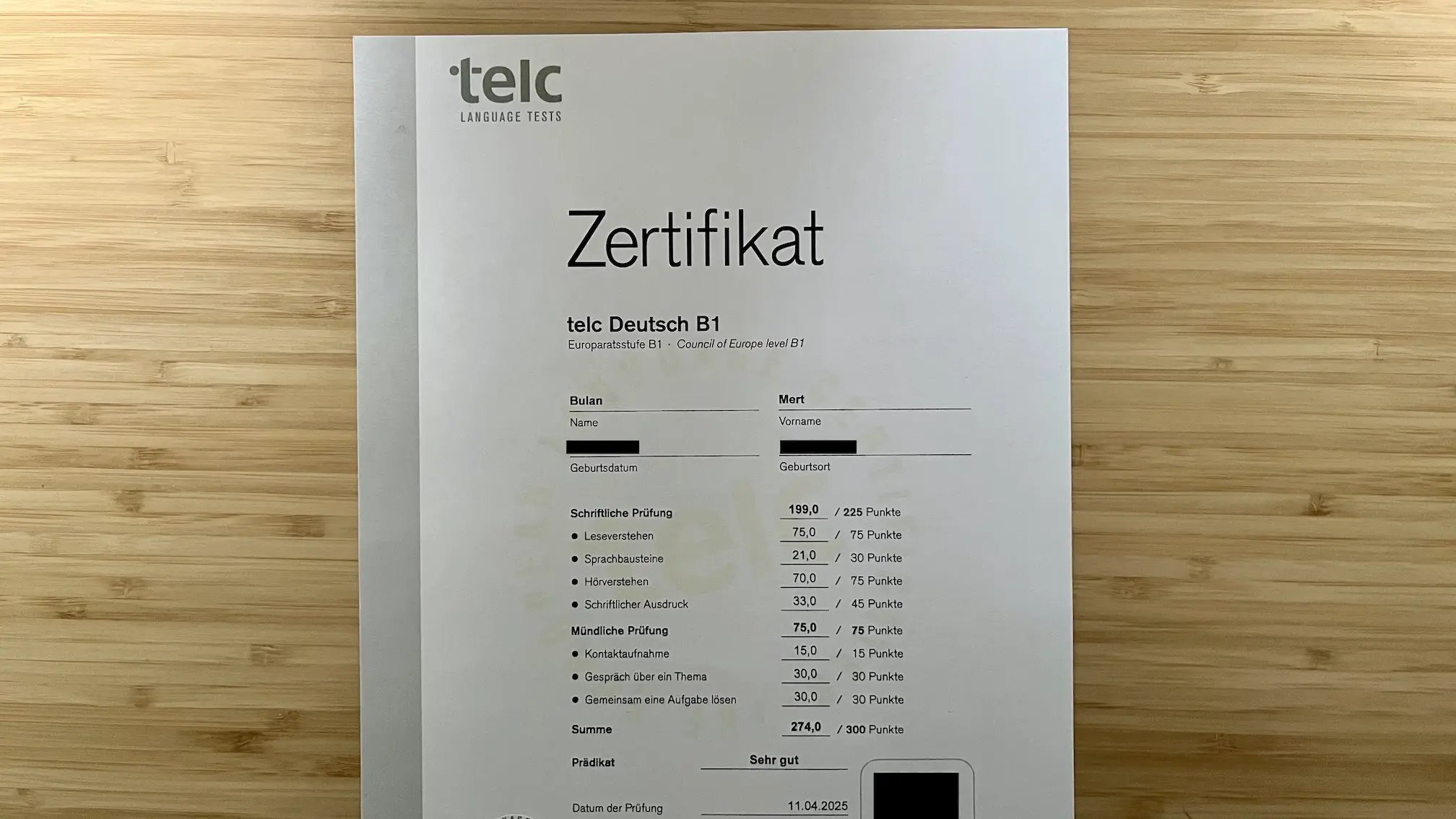I moved to Hamburg, Germany in 2018. During that time, I had to do a lot of research or ask a lot of questions to my colleagues. Nowadays, I am getting a lot of questions from my friends who want to move to Germany. I already answered their questions but at the same time, I thought it would be really useful to share those answers here so a lot of people can get some benefits from them.
First of all, I have to mention that these are my experiences and they might be different for your case. When you have a specific question for your case, please ask it to the correct person who can answer it properly. I am living in Hamburg and I moved here for work so if you are a student things might be different for you. I don’t know anything about being a student in Germany. Let’s get started!
First two weeks
The most important thing to do in your first two weeks is registering your address as soon as possible. If you don’t register your address at one of the customer services (Kundenzentrum), you will get a fine. To do that, first, you need to find a Kundenzentrum close to your work or home. In Germany, if you want to do something, you always need to get an appointment. Once you find a Kundenzentrum, you need to make an appointment for registration. (Anmeldung) Once you have your appointment, you need to get a paper from your landlord which confirms your rental contract. (Wohnungsgeberbestätigung) If you are living in a shared flat (WG), you can ask your flatmate to fill in the paper for you. You will also pay 12€ for the registration. (It might be different for your city)
Registering your address is important, because once you register your address:
- you will get a confirmation letter of your address (Anmeldebestätigung)
- you will get your tax id and class (they will send you a letter to your address)
- you will get your social security number
I assume that you are coming to Germany for work, so your employer will request that information from you. Once you get an Anmeldebestätigung, you will be able to open a bank account and register for health insurance. Every person who lives in Germany has to have health insurance. The most suggested health insurance company for people who don’t speak German is Techniker Krankenkasse. I also have health insurance from that company since they have English support. For a bank account, I use N26 since they also have English support, a really useful app and also opening a bank account is easy there. There is only one problem with N26, they give you a MasterCard and some places in Germany, you can’t use MasterCard, instead, you need to use EC Card. Especially paying in small stores and government offices, this might be a problem. So, it is nice to carry cash all the time.
The second thing that you need to keep in mind that would be better if you can keep all the invoices which are related to your moving. If you have a relocation package from your company, probably they are going to ask for those invoices so you can just give them and get your money back. If you don’t have a relocation package, you can deduct those expenses from your taxes. (For example, cost of changing your driver license, cost of transportation of your stuff, cost of your visa, etc.)
Another important topic is that if you don’t move from another European country, it would be better to have a sim card as soon as possible because you are going to live in a different city and you will need to use Apple Maps or Google Maps. The cheapest and easiest option is the ALDI Talk. You can buy a prepaid sim card from one of the ALDI supermarkets. While buying your sim card, you can also put money on it. Afterward, you confirm your identity with a mobile app and then you can buy internet packages. I still use the sim card that I bought when I moved to Germany. I pay 3,99€ for 1GB internet per month.
Health
After registering for your health insurance, you will get a letter that includes your health insurance card. (Gesundheitskarte) With that card, you can go to every doctor without paying anything but don’t forget it, you shouldn’t go to a hospital unless your house doctor (Hausarzt) gives you Überweisungsschein. Hospitals in Germany are there only for really important situations. If you have a cold, you can just search for a Hausarzt and get an appointment and go there. If you go there early in the morning, you might have a chance to see the doctor without an appointment. Keep in mind that getting an appointment from a specialized doctor might be hard. Sometimes you can get an appointment for after 1 month or 3 months. You can search for a doctor based on your need on this website or this website.
When you visit your doctor, if he/she thinks that you are not able to work, he/she might give you a paper (Arbeitsunfähigkeitsbescheinigung) to take rest at home. You can give this letter to your employer. Don’t forget, if you are sick don’t go to work because you can spread your sickness to your colleagues. (if you go to work when you are sick, I can guarantee you that your colleagues will stare at you with ‘What are you doing here?’ look) You have 6 weeks of paid sick leaves (same for everybody) so don’t hesitate to use them when you are sick.
Finding a flat
For some cities, this might be one of the hardest things that you will encounter in Germany. Especially for the big cities, it is really hard to find a flat. You might see scenes like this. For me, it took 3 months to find a flat and I can say that if you are not a super lucky person, this is the average time that you will spend on finding a flat but don’t worry. I will share everything I know regarding find a flat.
First of all, there are things that you need to know about flats in Germany, then, there are also papers that you need to prepare before visiting a flat. Let’s start with the first one.
When you are searching for a flat, you will see two types of prices: kaltmiete and warmmiete or cold rent and warm rent. Cold rent is the money that you pay for the flat itself. Warm rent is the money which includes cold rent, heating cost (Heizkosten) and all the other things related to maintenance of your flat. (Nebenkosten or Betriebskosten) They might be changed based on your contract. For example, my warm rent also includes water and garbage collection. For some flats, you might need to pay those costs yourself so don’t forget to ask your landlord what you need to pay before renting the flat because on the paper it might look cheap but if you also have to pay the additional costs yourself, it might be expensive for you. For example, for my current flat, I pay 720€ warm rent which includes 600€ cold rent, 40€ heating cost and 80€ operational cost (which includes water and garbage collection cost). The one thing that you need to keep in mind is that at the end of the year, one technician will visit your flat and check the counters on your radiators and your water counter. (nowadays they use wireless counters in new flats) The numbers in your contract are kind of an average number for your flat (based on previous tenants probably) so if you consume more energy for heating, your landlord will tell you to pay the difference. If you consume less, your landlord will pay the difference. This is also the same for water and electricity. (For electricity, you might need to enter the number on your electricity provider’s website)
If you are not renting a furnished flat, probably you are going to register for your electricity. The thing that you need to keep in mind is that if you don’t register for an electricity provider in two weeks, you will get a contract automatically and this contract will be a basic contract and probably it will be expensive. Registering for an electricity provider is easy. Only things that you need to know your electricity counter number (Zählernummer) and number on the counter (Zählerstand). When you get those numbers, you can just go to one of the electricity providers’ website and register. I use Greenpeaceenergy as my electricity provider because they are using 100% renewable energy.
When you are searching for a flat, you will see some flats without a kitchen or floor. So please read everything carefully before renting a flat. You might end up with a flat without a kitchen or floor. Before getting your keys, your landlord will ask you to pay the first rent and also the deposit. The deposit equals to three times of your cold rent. In my case, I paid a 1.800€ deposit. While sending the deposit, you will probably see that the bank account that you send for the deposit is different than the bank account that you will send the rent. The reason is that the landlords in Germany can not touch the deposit money until you decide to leave. Your landlord also can ask you to open a joint bank account for the deposit. When you decide to leave your flat, your landlord will visit your flat and check if everything is okay. If everything is okay, your landlord will pay back the deposit but some landlords might pay only 80% of the deposit first, after end of the year, your landlord will check other things like maybe you consumed so much energy for heating but you paid less so he will deduct from the rest of the deposit, etc. afterward if there is no problem, you will get the rest of your deposit.
Let’s talk about the papers that you will need when you are applying for a flat:
- Schufa (this is a paper which shows your credit score)
- Last 3 month’s payslips
- A letter from your previous landlord which says that you paid your rents in time
- Your ID
Since our assumption for this blog post is that you are moving to Germany first time, probably you are not going to have a Schufa or maybe you can get it but it will be probably positive. Until finding a flat, maybe you are not going to receive a salary or receive only one, it would be really helpful if you can get a letter from your HR which says how much you are going to earn. The main reason for this is that the landlords want to make sure that you can pay the rent. The rule of thumb is that the rent shouldn’t be more than your one-third of your salary. Since you are not a German if you are reading this blog post, you don’t have a German ID but you might have a Blue Card. So you can provide the picture of your Blue Card or if you don’t have Blue Card you can use your passport.
There are many websites that list flat ads but I think the most common one is ImmobilienScout24. You can go to this website, set your filters and create an alert. I highly suggest you buy Premium account because if you have a Premium, your message to the landlords will be shown on top, you will see the ads before the basic users, you will be able to get your Schufa free and also prepare all the documents that I shared above easily with the tool on the website. If you have a relocation package, probably you can get the money back that you paid for a premium from your company. Otherwise, you can deduct it from your taxes. If you are planning to live in a shared flat, you can use WG-Gesucht.
Once you find a flat which fits your requirements, you should send a message as soon as possible for asking for an appointment. If you are going to live in a big city, the competition will be really high so you have to be fast. In the message, would be really helpful if you can introduce yourself shortly. If you have luck, you will get an appointment. Don’t surprise if you see more than 20 people when you go for visiting the flat. (you can’t rent a flat without visiting, that’s the law) If you like the flat, you give your papers then the landlord selects one tenant from the people who gave their papers. Do not send any money to your potential landlord without getting your signed contract.
Once you have your signed contract, do not forget to buy a household insurance. I am using GetSafe since they have English support. You can also buy a liability insurance from them, if you live in Germany you should definitely have these two insurances. I pay around 10€ per month for both.
Garbage separation
In Germany, you have to separate your trash. The most common trash cans that you will see for paper, plastic and metal, residual waste. You will see these trash cans near your home and probably they will have a lock on them since you are paying for the collection only you and your neighbors can throw the trash into those cans. There are also bigger trash cans in your neighborhood that everybody can use for white, green and brown glass. There are also other types of trash cans which are not very common as the ones that I mentioned: electronic, textile and bio. If you have things which are big for these trash cans, you need to call someone and they will pick them up and you might need to pay a fee for that.
There is one important thing about bio trash can, while collection your trash, you should use paper bags because you can’t throw a plastic bag into bio trash can. You can find those bags under Bio-Müllbeutel or Biotüten names. Also in some cities, you can get 30 free paper bags with a coupon code. For Hamburg, you can get your coupon code from Stadtreinigung.
Silent hours and days (Ruhezeit)
In Germany, you can not make noise between 22:00 and 07:00 and all day on Sundays and public holidays. Under the tenancy law, if you make noise during the silent hours, your neighbors can complain to your landlord and your landlord can terminate your rental contract.
Supermarkets
There are many supermarket brands in Germany. The ones that I know: Rewe, Edeka, Penny, Aldi, and Lidl. The first two ones are real supermarkets that you can find almost everything that you need. The last three ones are discount markets, you can find most of the things that you need but you will have fewer options and they are going to be super cheap. I mostly go to Rewe because I find the shopping experience more pleasant and I like to try different brands every time. When you go to a supermarket, would be better if you bring your shopping bag otherwise you have to pay for it.
There are also some supermarkets which focus on mostly personal care and household items: BUDNI, ROSSMANN and dm. You can find those items cheaper than the other supermarkets and they have many alternatives for every product.
If you buy drinks in plastic, glass or aluminum bottles, sometimes on the price tag you will see something called PFAND. This is the deposit that you pay for the bottle, recycling is really important in Germany. If you bring back the bottles, you can get your money back.
Most of the supermarkets in Germany are closed on Sundays and during the public holidays except the ones in the train stations.
When you are done with your shopping and go to the checkout, if you want to pay with your card, you can just say “Karte, bitte.” Please check Google Translate for the pronunciation. Don’t forget it, politeness is really important for Germans. Bitte and Danke will be your best friends. After the payment, the person at the checkout will ask you if you want to get the receipt or not. There are different words for saying receipt: Beleg, Quittung, Kassenzettel, Zettel, Bon, Kassenbon. If you hear one of these words, you can answer by saying “Nein, danke.” if you don’t want to get the receipt. You can say “Ja, bitte.” if you want to get the receipt. Then, probably the person at the checkout will say have a good day/weekend/evening (Schönen Tag/Schönen Abend/Schönes Wochenende), you can answer by saying “Gleichfalls” which means you too.
If you enter a store and if someone ask you “Brauchen Sie Hilfe?”, it means “Do you need help?” (in a polite way) and if you want to say you are just looking, you can say: “Nein danke. Ich schaue mich nur um.”. Again, check Google Translate for the pronunciation.
Public Transportation
Every city has a different public transportation system. In Hamburg, it is completely trust based. You can walk into the subway station and take the train without passing any machine and also same for the long buses. You can use the middle and back doors of the long buses but for the small buses, you need to take the front door and show your ticket to the driver. Other than that there is no machine to validate your ticket. As far as I remember, in Berlin, after buying your ticket from a ticket machine, you need to validate it in a punch machine in the station. Sometimes, you will see people who ask for your ticket. If you don’t have a ticket, you will get a fine. They are doing this controls randomly so please do not even think to abuse the system, buy your ticket before entering the station. You can buy a single ticket based on your travel distance, also you can buy a daily, weekly or monthly ticket. There are ticket machines at the enterance of the train stations or next to the some bus stops. You can buy your ticket there or you can use the mobile app of the transportation service in your city. (In Hamburg, you can use HVV app)
Broadcasting Fee (Rundfunkbeitrag)
After your address registration, in a few weeks, you are going to receive a letter about the broadcasting fee. Every household in Germany has to pay this fee. It costs 17,50€ per month and you pay it every 3 months. In Germany, public service broadcasters are financed by this fee. In this way, media can stay independent from commercial and political interests. You can simply fill in the form that you got it in the letter with your bank account information and send it back. They will collect the fee every 3 months.
All the programs produced by public service broadcasters are in German. There is one exception, Deutsche Welle. It is Germany’s international broadcaster, and it has YouTube channels and websites in many different languages.
Books
If you want to know about the history of Germany and the culture of Germans, I can suggest two books that I liked to read. The first book is “German Men Sit Down To Pee & Other Insights Into German Culture”, it is really fun to read. You can see how Germans behave in some situations. Some people might find it interesting but to be honest, most of the things make sense to me. The second book is about the history of Germany. It is called “Germany: Memories of a Nation”. This is a nice book to understand the history of Germany. You don’t only read about the wars but you also read about the people who changed the things in their field like Martin Luther and the ideas which changed industries like Bauhaus.
Last updated: 21 August 2021






